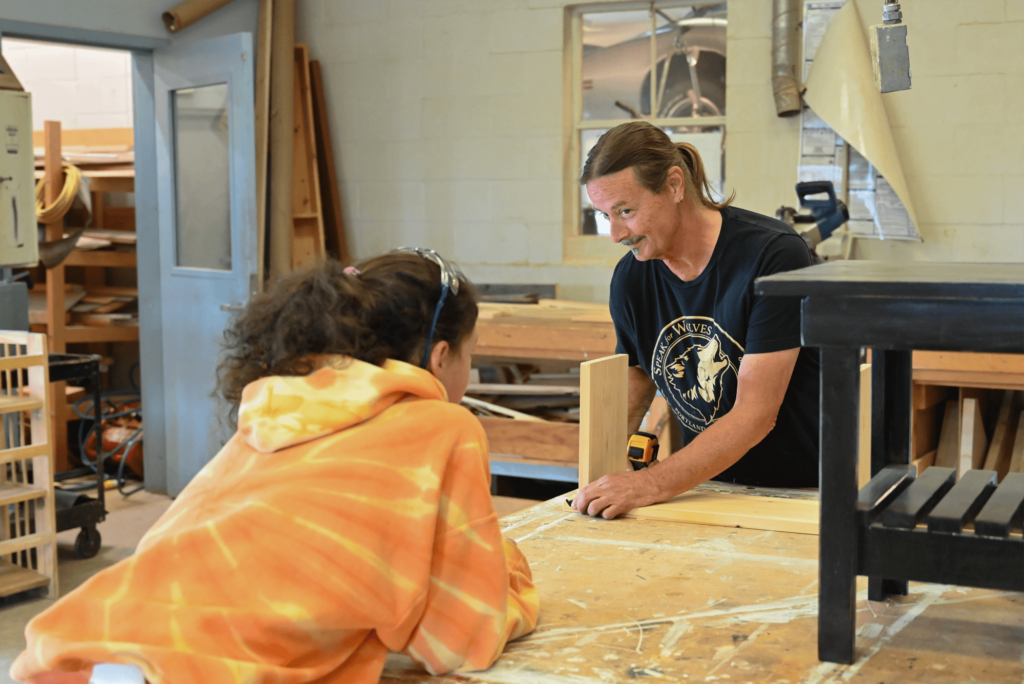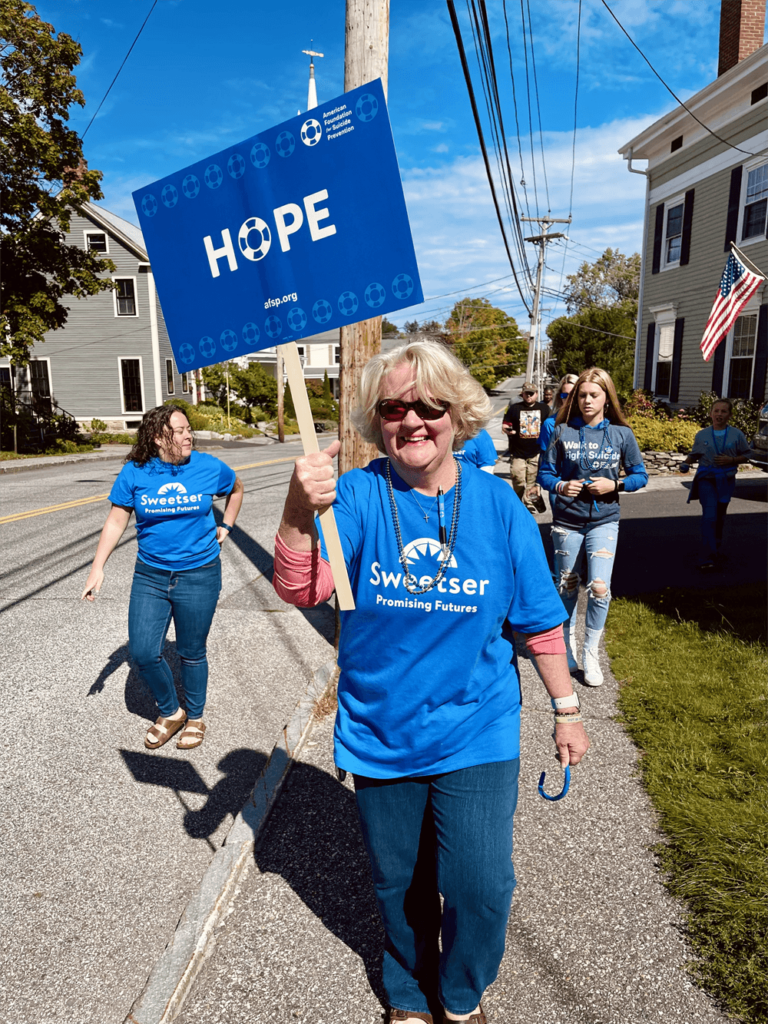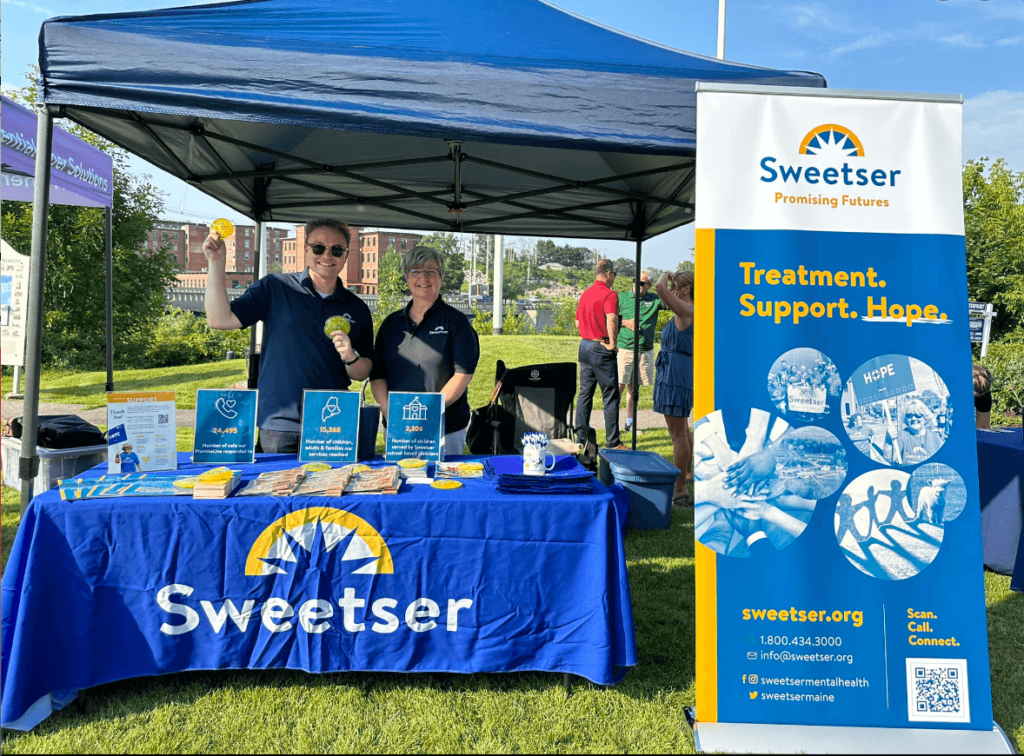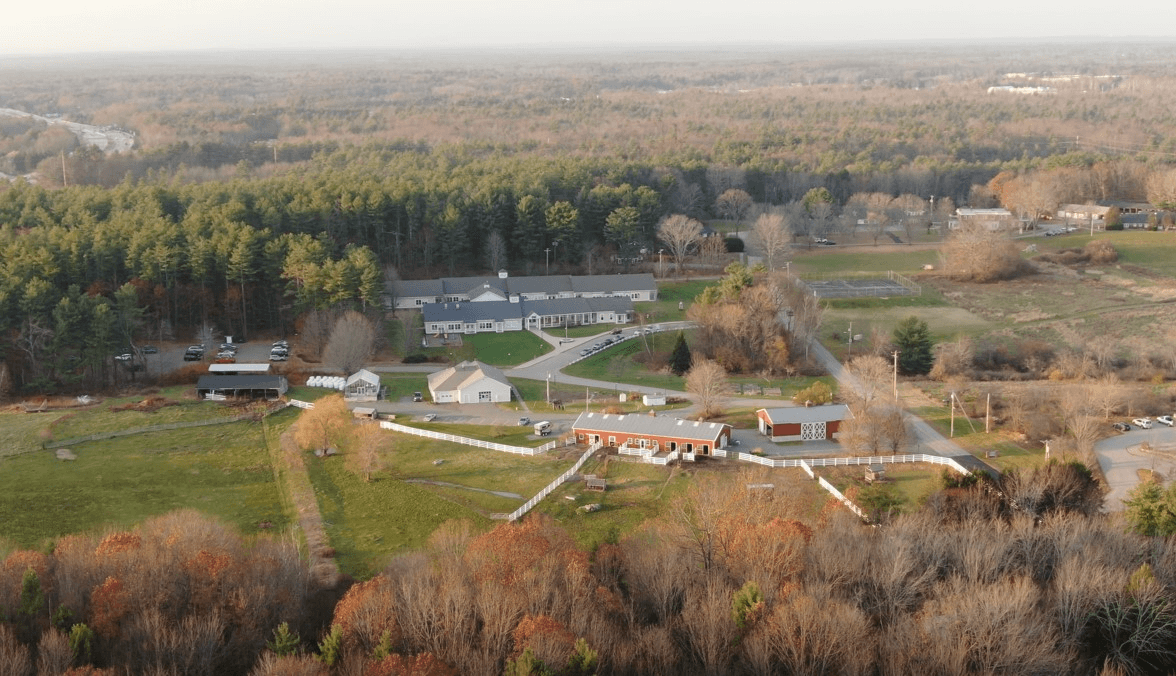Sweetser offers support in many ways for your child and your family’s behavioral health needs. Hannaford has supported this nonprofit organization through the Hannaford Helps Community Bag and Bloomin’ 4 Good Programs.
Tell us about Sweetser.
Sweetser is a behavioral health nonprofit that provides evidence-based treatment, support and hope through a statewide network of community-based mental health recovery and educational services. Last year, we served over 15,000 individuals, children, families and adults in every corner of Maine.
Believe it or not, we were founded in 1828, which means we’re approaching our 200th anniversary. There aren’t many organizations around that can say they’ve reached that threshold. It speaks to the fact that we constantly adapt to the changing environment based on the needs of our communities.
We started out serving children as a children’s home. And from there, it has morphed into a wide variety of different programs and services. We cover anything from eating disorders treatment to general therapy to crisis services and everything in between. The fact that we’ve been around as long as we have been and serve the number of people we do speaks to the value of our work.
We cover anything from eating disorders treatment to general therapy to crisis services and everything in between.
What services do you provide to the community?
Sweetser serves all age ranges. We have a network of independently licensed therapists in every corner of our state.
Because of the need, in many cases, we have over 2,000 individuals on a waitlist for mental health services. That doesn’t mean every program is full, but it does mean that we’re seeing such a need in Maine that the providers throughout our entire behavioral health system can’t meet it. Mental health is now more public. And with the next generation, we’re seeing mental health embraced as a workplace necessity and another aspect of life that we need to address, which is great to see.
We offer an experiential K-12 school in Saco. And it’s the heart of our organization. We provide day treatment and residential treatment to children in grades K-12. One of the benefits of this program is that they get hands-on experience. The school has a culinary program and a working farm that the students manage. They take care of chickens, horses, donkeys and pigs. We have a greenhouse where they grow vegetables and plants that we sell in the community. There’s an automotive program where they can learn automotive skills and a woodshop for woodworking programs.

We’re helping students achieve their treatment objectives in an alternative setting, and that’s important. Not every student will thrive in a classroom; taking them out of that environment and putting them with their peers in a setting like a farm fundamentally changes how they address and work through their behavioral health challenges. We even teach the maple syrup process. Students tap the trees, boil the sap and bottle the final product. They experience the entire production right on campus. To see students take to that type of experience is powerful. They have ownership over it and feel pride because they have achieved something.
Not every student will thrive in a classroom; taking them out of that environment and putting them with their peers in a setting like a farm fundamentally changes how they address and work through their behavioral health challenges.
For other services, we have school-based clinicians in schools across the state to address the significant decline in youth mental health. Having clinicians embedded in the classroom working with students, educators, guidance counselors and their families is critically important in addressing mental health concerns. Sweetser serves about 2,300 students through that platform, and we’re constantly growing to more school districts.
We also have an OPTIONS program, which is through the state of Maine, to increase awareness around substance use and to educate on how to utilize Naloxone (a medicine that rapidly reverses an opioid overdose) to prevent an overdose. Sweetser tries to tackle the opioid crisis from every angle. We have folks in the community making presentations, showing people how to use this life-saving modality.
Then, we have clinicians in primary care offices as a one-stop shop when you’re talking about your overall wellness. Your mental health is a critical component of your overall health and wellness. I could keep going! We have so many different services. I like to think of it as a buffet of options. No matter what you need, the key is to seek professional help. You must take that first step to engage because people are willing to help.
What sets your organization apart from others in your community?
We’re the leading provider of mobile crisis services in Maine. Through this program, we served over 5,000 people last year. These services are essential because it’s about meeting folks literally and physically where they are.

We have clinicians go anywhere to meet people where they are and help them with whatever they are going through. When you’re going through a crisis, you can’t always plan when or where it will happen. The pandemic has shown us that. To be nimble, quick and responsive to the needs of Maine people is essential and does set us apart from other organizations.
Tell us a story that illustrates your organization’s good work.
I’d go back to our school. There’s something special about seeing students enter our program in rough shape; they could even be violent toward their classmates or the staff. And then turn it around in a relatively short amount of time. They eventually cross the finish line, graduate, and have their diploma.
The students still get to graduate from their local high school, but they’ve been through our program every step of the way. To see that success and the students take pride in making it through one of the darkest times in their lives. They’re on the other side with their whole life ahead of them to achieve whatever they want.
That accomplishment is such a powerful reminder of why we do this work. I know it motivates me in my job and so many others at this organization. We have over 600 staff members across the state. They each have a powerful story of the impact that motivates them. Ultimately, those stories inspire us: when an individual shines, makes it and finally says, “You know what? I overcame those challenges.” They were willing to accept help, and their treatment and support at Sweetser led to a more hopeful future. That’s why we do this work!
Ultimately, those stories inspire us: when an individual shines, makes it and finally says, “You know what? I overcame those challenges.”
What is your most outstanding achievement or contribution to the community?
We’re focused on advancing our organization and the behavioral health system. This is important because we are one piece of a bigger puzzle. When the behavioral health system is successful, we’re successful.
A part of this is educating the public. Our outreach efforts let folks know how to recognize mental health in themselves and in those around them. We offer free mental health first-aid training. We do this with any interested group, whether a workplace, a civic group, a school, firefighters or frontline workers that want to recognize it and better their own lives. This is important. I point to eating disorders as a good example; not everyone knows that an eating disorder is a mental illness. Educating and creating awareness to reduce the stigma attached to mental health is critically important.

We do this work through PSAs and other media initiatives and then engage policymakers. We collaborate with other behavioral health providers and hospitals to engage state and federal lawmakers. These efforts are to better the system.
We work on expanding school-based clinicians in every school, but this program loses money every year. We’re one of the only providers because the financial component just doesn’t work. We are working with policymakers, such as the Maine Speaker of the House and the Senate President, to advance bills that help address our behavioral health challenges, including better support for youth in school. We must continually discuss the ever-changing needs of behavioral health in Maine.
What do you want people to know about Sweetser?
There’s something for everyone! Anybody can take advantage of and utilize our services to better themselves, their friends or their family members. It’s a fact that mental illness impacts everyone, no matter their socio-economic status, regardless of their background or what job they have. It’s about being able to listen to yourself, listen to others and pick up the signs to say maybe it’s time we talk to someone.
There’s something for everyone! Anybody can take advantage of and utilize our services to better themselves, their friends or their family members.
We have something called the Intentional Warm Line at 1.866.771.9276 (WARM), where you can pick up the phone 24/7 for free and talk to somebody with lived experience with a mental illness. They’ll talk with you through whatever you need to talk through. Some folks regularly call because they value it so much. Loneliness is such a big epidemic, particularly in the rural parts of our state.
It’s also essential for the public to know their options because when you’re trying to unpack the behavioral health system, knowing where to start can feel like a massive barrier. We have a PromiseLine that people can call or email (1-800-434-3000 or info@sweetser.org). This is where you can start if you need help figuring out where to begin or what you need. We are here to support you.
How will you use the funds raised from the Hannaford Helps Community Bag and Bloomin’ 4 Good Programs?
We appreciate the partnership; it’s so impactful. Every little bit helps move the needle. Sweetser doesn’t turn anyone away from services regardless of their ability to pay. When we do essential fundraising initiatives, we are centered around ensuring everyone gets the treatment they need because we all deserve access to mental health services.
Partnerships, like this one with Hannaford, help us provide for those who otherwise can’t afford the significant cost of care.
Is there anything you’d like to add?
We want people to know that if you need care and a place to start, call or email our Promise Line (1-800-434-3000 or info@sweetser.org). Or, if you just need to talk to someone with lived experience, call our Intentional Warm Line at 1.866.771.9276 (WARM). We are here to help! All this information can be accessed on our website at www.sweetser.org.

Published August 24, 2023.
